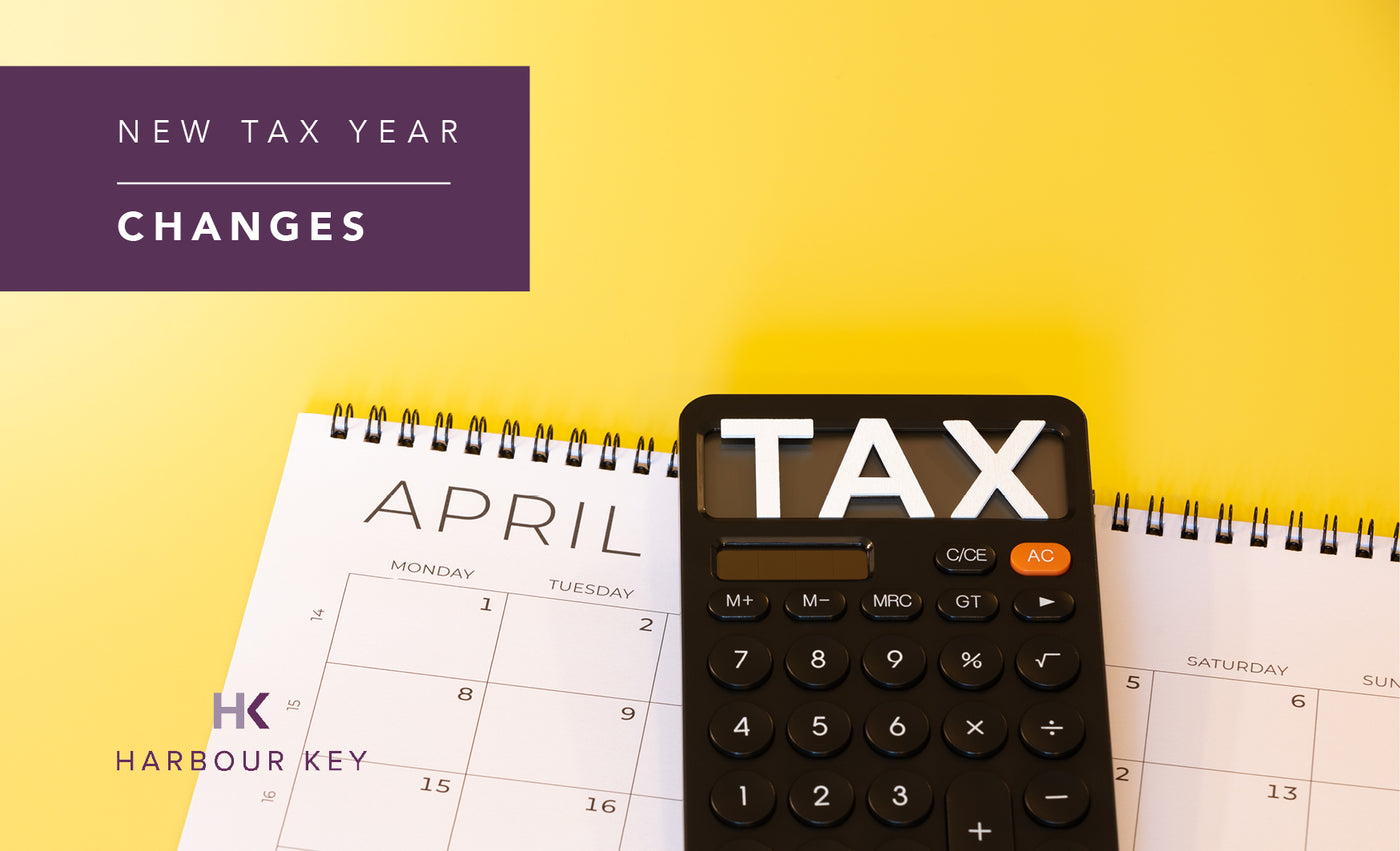
1 April for corporates and 6 April for individuals marks the start of the 2024/25 tax year, when tax rates, allowances and thresholds change.
We have had two Budgets in the last six months, with upcoming changes announced over a number of Budgets. To keep up, we have summarised the main changes here.
Individuals
- The dividend allowance (the amount of dividend income any taxpayer can earn tax free) has been cut to £500. (The allowance was £2,000 in 2022/23).
- The annual exempt allowance for Capital Gains Tax (CGT), the amount of chargeable gain that is tax free is cut to £3,000 (the exemption in 2022/23 was £12,300).
- CGT charged on gains arising on the disposal of a residential property charged at 24% (reduced from 28% in the most recent Budget). The standard (for those who are basic rate tax) is unchanged at 18%.
- The rate of employee National Insurance Contributions (NICs) has been cut to 8%. This will save the average worker on £35,400 over £900 a year.
- The income limit for married couples’ allowance increases to £37,000 from the current £34,600.
- The main rate of Class 4 NICs for the self-employed is now 6% (before 6 April this was 9%).
- Class 2 NIC has been abolished.
- The high-income child benefit charge (HICBC) will increase to £60,000 from the current £50,000. There is a 1% charge on child benefit for every £200 of income that exceeds £60,000. If income exceeds £80,000, the charge is equal to the amount of the child benefit payment. Anyone who has opted out of child benefits due to HICBC should review their position and if reclaiming, can apply via the HMRC app or online.
- Child benefit will increase from £24.00 to £25.60 for the eldest child, while the rate for further children rises to £16.95 from £15.90.
- Families with one child will now receive up to £1,331 a year – an annual increase of £83.20, and up to £881 a year per additional child – an annual increase of £54.60.
- State pension increases to £221.20 a week, up from £203.85, equivalent to £11,502 a year, approaching the basic rate tax threshold of £12,570.
- The working tax credit basic element rising from £2,280 to £2,435, and the couple and lone parent element up from £2,340 to £2,500..
Companies
- The VAT registration threshold is raised from £85,000 to £90,000 from 1 April.
- The level at which a business can apply for VAT de-registration is £88,000.
- Research and development (R&D) tax relief has changed with the merger of the existing SME and large business R&D relief into a single scheme, apart from intensive R&D which is now drawn into a completely new scheme.
- The national living wage rate has gone up to £11.44 from £10.42 from 1 April (now covering 21 and over) with the 18 to 20 rate increasing to £8.60 per hour, together with increases for young workers and apprentices.
- The small business multiplier for business rates is frozen for a fourth consecutive year, protecting over a million ratepayers from a 6.6% increase in their bills.
- As of 1April air passenger duty increased:
- the Band B (long-haul) economy class rate was increased by £1 to £88.
- Band C (ultra-long haul) to £92.
- Band B and C business and first-class rates £194 and £202.
- The UK Independent Film Tax Credit (IFTC), designed to boost the production of UK independent films and support UK talent in films. Under the IFTC, eligible films will be able to claim an enhanced credit, at a rate of 53%, on their qualifying expenditure.



